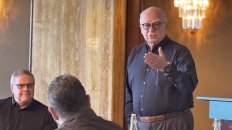It’s that time of year again when teachers are gathering together in Professional Learning Communities (PLC). The acronym “PLC“ has come to mean many different things in schools.
The idea of professional learning communities isn’t a new concept, but its core elements have dissolved into numerous variations. The value of professional collaboration in schools was recognized as early as the 1980s. Research shows that building collaborative teams of teachers, that work together to improve learning is the number one factor influencing student success (Hattie, 2015).
As we begin to participate in PLCs this school year, it’s a great time to take a closer look at what makes them beneficial at promoting success for students.
PLCs advance learning
When all of the members of a PLC focus on student learning, solutions transform into action. It’s easy for any community to lose sight of its collective purpose. In many PLC meetings, student learning can take a backseat to topics such as dismissal procedures or grading policies. However, improvement in student learning results when a group of professionals gather to analyze their current realities about student learning and chart a path together to improve instruction.
PLCs advance student learning when it is their primary focus. For example, PLC members should meet regularly to monitor current student data, unpack standards and create ongoing plans to eliminate gaps between instruction and learning. Highly successful PLC meetings result in a product, whether it is a plan for re-teaching a concept or a common assessment that will be used to measure progress.
PLCs inspire professionalism
As a profession, education has a single purpose of guaranteeing that all students learn. Because teachers come to the profession with varied skill sets, it is important for them to rely on their colleagues. Drawing upon a community of other educators with the same purpose, stimulates growth and builds capacity.
PLCs offer an opportunity for teachers to enhance their professional expertise. For example, teachers often change grade levels. Regardless of their skill in the classroom, they may need to lean on their professional community for the best ways to deliver content that is new to him/her.
On the other hand, PLCs can inspire veteran educators to take a closer look at how their current professional practices can evolve to better fit the changing needs of students. A teacher should not only hold expertise in education, but also remain current in its ever-changing body of knowledge. PLCs offer a real-time way to get job-embedded professional development.
PLCs engage educators in a collaborative community focused on learning
At the heart of the PLC is collaboration. PLCs engage in a process of collective inquiry and share responsibility for improving student outcomes. However, it’s not always easy to ensure that teams collaborate about ways to improve learning. If you’re tasked with leading a PLC team meeting, it can seem impossible to corral personalities and opinions to make meetings beneficial. Establishing group norms and maintaining a strong focus on student learning can really help.
According to Richard DuFour, an authority on learning communities, posing four critical questions can help teams remain focused on learning: “What is it we want each student to learn? How will we know when each student has learned it? How will we respond when a student experiences difficulty learning? How will we enrich and extend the learning for students who are proficient?” (DuFour, DuFour, Eaker, 2012).
Finally, as you head into your next PLC meeting, we hope that your teams will work to advance your students, inspire professional practices, and engage in collaborative solutions.
Resources
DuFour, R., DuFour, R. B., & Eaker, R. E. (2012). Revisiting professional learning communities at work new insights for improving schools. United States: Solution Tree Press.
Hattie, J. (2015). The applicability of Visible Learning to higher education. Scholarship of Teaching and Learning in Psychology, 1(1), 79-91.
Jennifer is an Education Specialist for School Improvement Initiatives here at Region 13.





Add comment